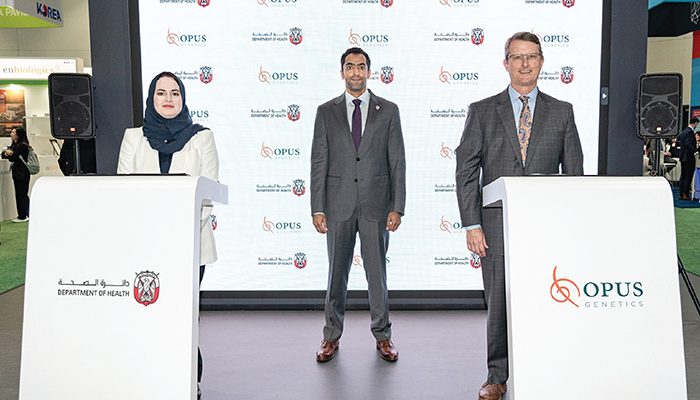
Credit: The Abu Dhabi Department of Health
From business acquisitions to UK firsts to the importance of physical exercise in reducing senile cataract risks, these are the studies that caught our attention this week…
From multinational partnerships to a new take on flicker electroretinography, these are the news stories and studies that caught our attention this week…
United Arab Emirates to focus on rare inherited retinal diseases. At the recent BIO International Convention 2024 held in San Diego, the Department of Health – Abu Dhabi (DoH) signed a partnership with Opus Genetics – a clinical-stage gene therapy company focused on rare inherited retinal diseases (IRD). The two parties hope that their joint collaboration will further accelerate the development of gene therapies for patients with IRDs – both in the UAE and globally. Link
Eversight and LighTopTech join forces. Last week, Eversight – a nonprofit eye bank who state that they aim to “restore sight and prevent blindness” – announced a partnership with LighTopTech – a technology company that produces innovative optical instruments – in a bid to “revolutionize ophthalmic imaging.” Link
Visual impairment and cardiovascular disease. Adults with visual impairment (VI) are more likely to suffer from cardiovascular disease (CVD), according to a new study. Whereas previous literature on this association has focused almost exclusively on elderly demographics, the Ophthalmic Epidemiology study analyzed data from 32,268 individuals, aged 30–74 years, in low, middle, and high-income countries. Perhaps surprisingly, the findings indicated that the risk of developing CVD was higher in those VI adults who were under 65 years old and employed. Link
Anti-VEGF in a practice setting. A recent BMC Ophthalmology study has reported that, in addition to improving visual outcomes, anti-VEGF treatment can slow the rate of diabetic retinopathy (DR) progression. The study examined the use of anti-VEGF within a routine clinical practice setting, concluding that the progression rate from severe nonproliferative DR (NPDR) to proliferative diabetic retinopathy (PDR) among the 145,466 eyes analyzed were approximately halved when compared with eyes receiving no treatment. Link
f-ORG over f-ERG? Scientists at the International Centre for Translational Eye Research (ICTER) have developed a technique known as flicker optoretinography (f-ORG). Taking rapid measurements of the photoreceptors’ response to flicker simulation, f-ORG is a new take on flicker electroretinography (f-ERG), which claims to be less invasive and more focused on the optical. The ICTER team hopes their tool could provide a new biomarker for early detection of retinal diseases. Link
